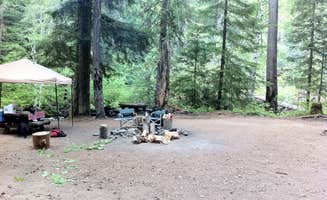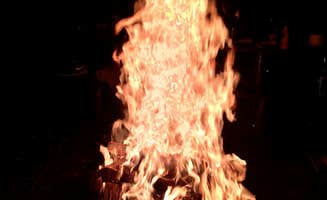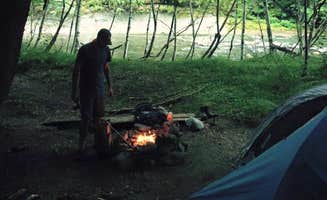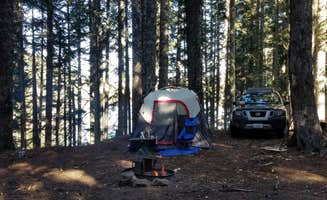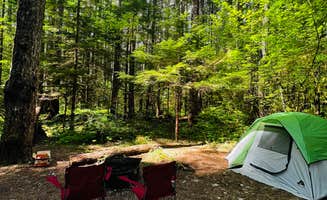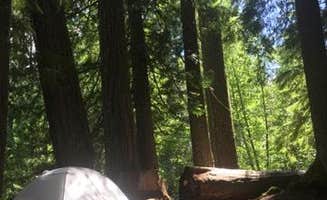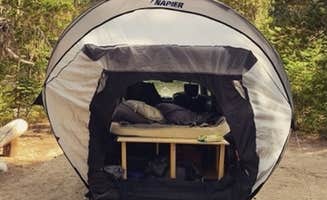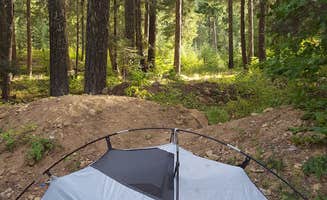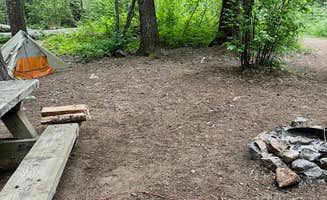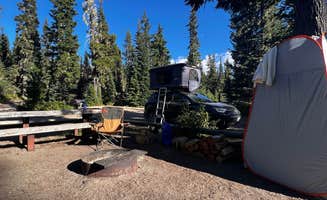Camping near Gifford Pinchot National Forest
Gifford Pinchot National Forest in Washington state encompasses a diverse range of camping environments from developed campgrounds to primitive sites along rivers and lakes. Lower Falls Campground provides access to spectacular waterfalls with hike-in and drive-in options, while Takhlakh Lake Campground offers stunning lake views and proximity to hiking trails. Campground options span from tent-only areas like Horseshoe Lake to full-service facilities including Elk Meadows RV Park, which offers cabins, RV hookups, and tent sites. Many campgrounds in the forest operate seasonally, typically opening in late May or June and closing between September and November.
Road conditions can significantly impact accessibility throughout the forest, especially for accessing more remote sites. Forest Roads like FR 90 and FR 25 provide main access routes but often develop potholes and washouts that require higher clearance vehicles. Several campgrounds, including Twin Falls and Council Lake, have rough, unpaved roads leading to their entrances that can be challenging for standard passenger cars and impossible for RVs or trailers. Permits may be required at some locations, and many campgrounds operate on a first-come, first-served basis with limited or no amenities. "It's a bumpy windy road down to the campground. I wouldn't take a car down without high clearance. Didn't need 4WD to get around but the ruts are deep in certain spots."
The Lewis River corridor represents a prime attraction within the forest, featuring multiple waterfalls and swimming holes during summer months. Campers frequently mention the natural sounds of nearby waterfalls creating peaceful sleeping conditions, particularly at Twin Falls where sites are positioned within hearing distance of the falls. Wildlife observations are common, with visitors reporting river otters, chipmunks, eagles, and various bird species. Water access remains a significant draw, with fishing opportunities at Council Lake and swimming at Lower Lewis Falls receiving consistent mentions in visitor feedback. More remote campgrounds typically offer greater solitude but fewer amenities, with many providing only vault toilets and no running water. Mosquitoes and yellow jackets can be problematic during summer months, particularly near lakes and in meadow areas.


